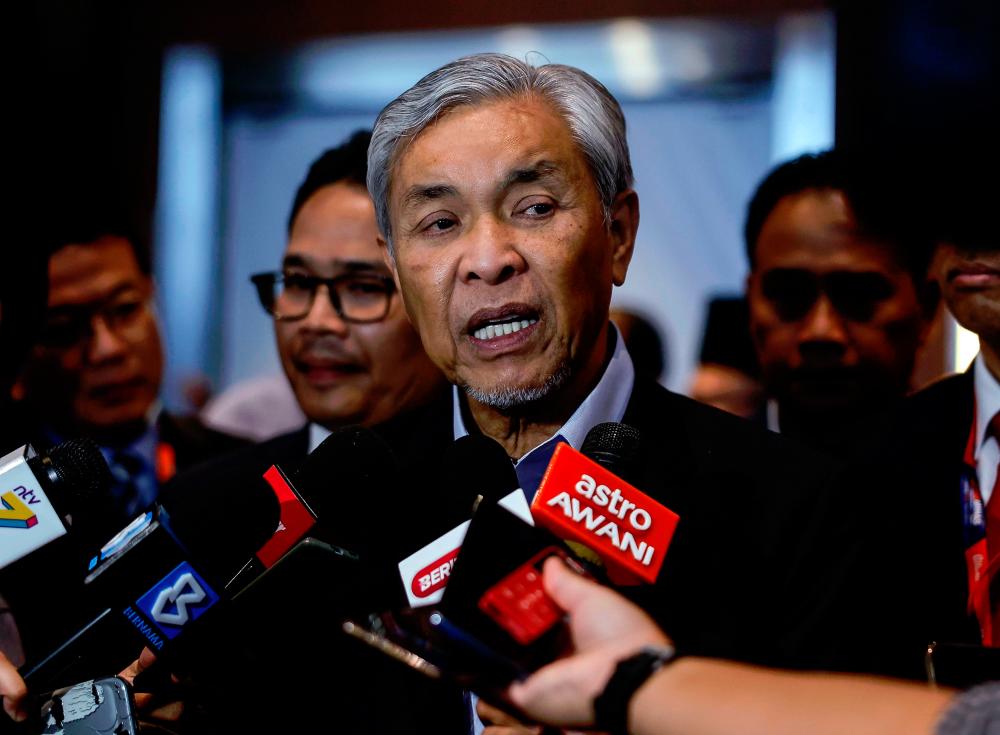PUTRAJAYA: The government’s move to tackle the impact of retaliatory tariffs imposed by the United States on Malaysia aims to protect the people, particularly rural communities, to ensure they remain resilient amid global uncertainties, said Deputy Prime Minister Datuk Seri Dr Ahmad Zahid Hamidi.
Ahmad Zahid, who also serves as the Rural and Regional Development Minister, said the MADANI government’s proactive measure to establish the National Geo-Economics Action Centre (NGCC) reflects its commitment to preserving national interests and ensuring that Malaysia’s competitiveness remains globally strong.
“I take seriously the challenges rural communities face due to global trade uncertainties. Many rural people rely on the electric and electronic (E&E), palm oil, rubber, and agriculture sectors, with the US being one of Malaysia’s key export markets.
“I am confident that the government’s efforts—not only to negotiate tariff reductions but also open new markets in ASEAN, the Middle East, Egypt, Pakistan, and Cambodia—are crucial in protecting the income and survival of those affected,” he said in a Facebook post, here today.
Ahmad Zahid said the government’s swift action in setting aside the RM1 billion allocation to upgrade the Sabah and Sarawak-Kalimantan borders and raise the limit for procurement by quotation from RM1 million to RM3 million, will see projects to build schools, clinics, roads and flood mitigation can be expedited, which would open up more job opportunities for small-scale contractors and workers in rural areas.
The chairman of the Technical and Vocational Education and Training (TVET) Council said that challenges in the E&E sector would impact the demand for highly skilled human capital.
“I am committed to boosting the country’s TVET institutions to encourage more international collaborations, particularly in artificial intelligence, green technology, and digitalisation.
“Our priority is to ensure more rural youths get access to relevant and quality TVET training and increase their participation in high-value sectors that will drive the future economy,” he said.
Ahmad Zahid said Malaysia is now on a steady trajectory, with a 5.1 per cent GDP growth for 2024, a declining fiscal deficit, and stable inflation rates.
The government is also committed to implementing reform agendas such as the New Industrial Masterplan 2030, the National Energy Transition Roadmap, and national digitalisation efforts without compromising key principles, including Bumiputera rights, the plight of local vendors, and the protection of strategic sectors.
“Let us strengthen the saf (unite), foster national solidarity and work together to realise the reform agendas under the MADANI Economy framework, to build a more prosperous, inclusive and resilient Malaysia for future generations,” he added.









